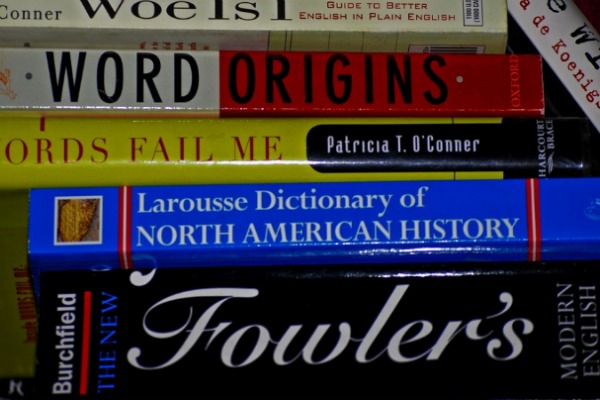9 Easy Languages for English Speakers to Learn
A Swedish friend of mine speaks English and German with near-perfect fluency.
Theyre easy to learn, she insists with what I had believed to be sweet humility.
I had always assumed the Swedes were just good at everything, hence their omnipresence on North American hockey teams.
She firmly denied these superpowers. English is a lot more like Swedish than you realize.
English is a part of the Germanic family, and is linked to many European languages by descent or influence. It was also a big mooch in its formative years, with over 50% of its vocabulary stemming from Latin or French.
The result?
There are a lot of languages out there sharing common traits with English, which is great news when it comes to language study. When familiar structure or vocabulary is in place, the learning process becomes faster and easier. Hence my friend, the nonchalant polyglot.
Below are nine of the easiest for English speakers to learn, as classed by the Foreign Service Institute.
1. Afrikaans
Afrikaans and English both derive from the West Germanic language family. Phonetics and pronunciation are comfortable for English speakers; the one wee hurdle is the Afrikaans g, pronounced like the ch in Bach.
Unlike English though, the Afrikaans language is not inflective. This means that with some memorized vocabulary, you can build sentences as you would a Lego tower, stacking words without worry of conjugation.
In Afrikaans, there is no conjugation of verbs (write, wrote, written), gender (think gato or gata in Spanish) or pronouns (my, mine; who, whose). In other words, youll hardly be a grammar slave if you take up this logical language.
2. ! Danish
As with most Scandinavian languages, the biggest hurdle with studying Danish is in being able to practice. English is spoken widely and fluently across northern European countries.
Danish is said to be the hardest Scandinavian language to learn because of its speaking patterns. It is generally spoken more quickly and more softly than other Scandinavian languages. Danish is also flatter and more monotonous than English.
Grammatically, though, its relatively easy. Danish has only nine verb forms, including the passive, which is peculiar to Scandinavian languages but familiar to English speakers. Danish has a lot of Germanic-based cognate vocabulary too: Monday Tuesday Wednesday, in Danish, are Mandag, Tirsdag, Onsdag.

Photo: nazareth college
3. French
Like all romance languages, French has a few difficulties for prospective speakers. There are more verb forms (17, compared to the English 12) and gendered nouns (le crayon, la table). Pronunciation is especially difficult in French, with vowel sounds and silent letters.
The bright side?
Like all Romance languages, Frenchs Latin derivations make much of the vocabulary familiar to English speakers (edifice, royal, village). Linguists debate the concrete number, but its said that French has influenced up to a third of English vocabulary, giving it more lexical common ground with English than any other romance language.
4. Italian
Another romance language, Italian has the great feature of readability. Italian is written as its spelled. For learners, reading comes fluidly once a few new phonemes are learned ( like ghi- or ci-).
Italian words tend to end in vowels, which makes for really fun, flowing speaking, as you might hear in Italians speaking English (thats-a my-a house-a).
Gramm! atically , the language follows typical Romantic structure, with gendered nouns and similar word order. One perk: Italian has fewer verb forms than French or Spanish.
Italian is widely seen as the language of gastronomy. Many English speakers like to study by reading Italian restaurant menus and salivating.
5. Norwegian
The language is structurally similar to Danish, but with pronunciation more familiar to English speakers. Norwegian, like Swedish, uses a tonal pitch accent to distinguish homonyms, stressing either the first or second syllable of the word. Its an easy concept to grasp: think decent and descent in English.
Verbs are a relative breeze in Norwegian, with no conjugation according to person or number. The past tense is formed with a simple e suffix; the future is formed with the auxiliary vil; the conditional perfect with ville ha. The passive tense is formed by adding a simple s. Its a walk in the park compared to English.
6. Portuguese
Grammatically, Portuguese is similar to other Romance languages. There are fewer prepositions in Portuguese than in English (easy to remember!) However, their uses dont always have direct parallels in English (easy to mix up).
One great element of the language is that interrogatives are beautifully easy, expressed by intonation alone (You love me?) If you can say it in Portuguese, you can ask it. Whats more, in Brazilian Portuguese, theres one catchall question tag form: no .
Pronunciation is fairly comfortable for English speakers, though the more nasal vowel sounds take some practice
7. Romanian
The geographic dark horse of the romance languages, Romanian is often assumed to be the most difficult of the bunch, with its Slavic influences. Not so fast.
They say that Romanian is the closest living language to Latin, and has preserved a lot of Latins grammatical structure. Articles are a bit of a puzzle in Romanian, with definite articles attached as a suffix to the end of nouns (frate/ fratele, ! brother/ the brother), while indefinite articles appear before nouns (copil/un copil, child/a child).
Though the language has taken Slavic influences in its vocabulary, the language is still about 80% Latin-based, and full of cognates like sub (under) or obiect (object).

Photo: vizzzual-dot.com
8. Spanish
Spanish pronunciation is fairly easy for English speakers, with only ten vowel/dipthong sounds (English has 20), and the easy-to-master letter . Like Italian, the orthography is clear and simple; words are written as theyre pronounced, which makes reading easier. Grammatically, Spanish has fewer irregularities than other romance languages too.
A slippery element of the language (and all the Romances) is in false cognates: word pairings that sound the same as an English word, but mean something different. Particular means private in Spanish, and eventual means possible. See how that could get confusing?
Still, theres no shortage of people in the world to help you fix these slip-ups. With 330 million native speakers, its the most popular language on this list.
9. Swedish
A fellow Germanic language, Swedish has some vocabulary common with English (mus for mouse, kung for king), and a similar syntax too.
Pronunciation may be a struggle at first, with nine vowels (like or ) and the sje- sound, which is unique to Swedish. Once you master it, though, the language is surprisingly melodic.
Students of the language gripe about the complicated grammar system, but the syntax shouldnt be unfamiliar to an English speaker. In Swedish, the Subject-Verb-Object pattern is standard word order.
Also, verb formation uses many of the same patterns as English. The future tense, for example, is described with komma att + infinitive (will), or ska + infinitive (go! ing to). Also, verbs are normally constant, even if the person changes. I am, you are, he/she is would be Jag r, du r, han/hon r.
Honorable Mention: Frisian
Never heard of it? Its spoken by less than half a million people in the province of Friesland in the Netherlands. It wasnt included on the list because Frisian is rarely studied as a second language, so finding a textbook or tutor outside the North Sea would be nigh impossible.
Linguistically it is the closest language to English, stemming from the same subfamily of West Germanic languages. Theres a catchy saying: Good butter and good cheese (Goed bter en goed tsiis) is good English and good Fries. Phonetically, the phrases are almost identical. Uncanny. ![]()
Community Connection
Have you studied any of these languages? Share your learning tips and advice in the comments.

Comments
Post a Comment